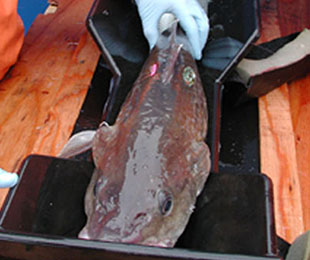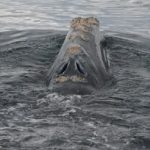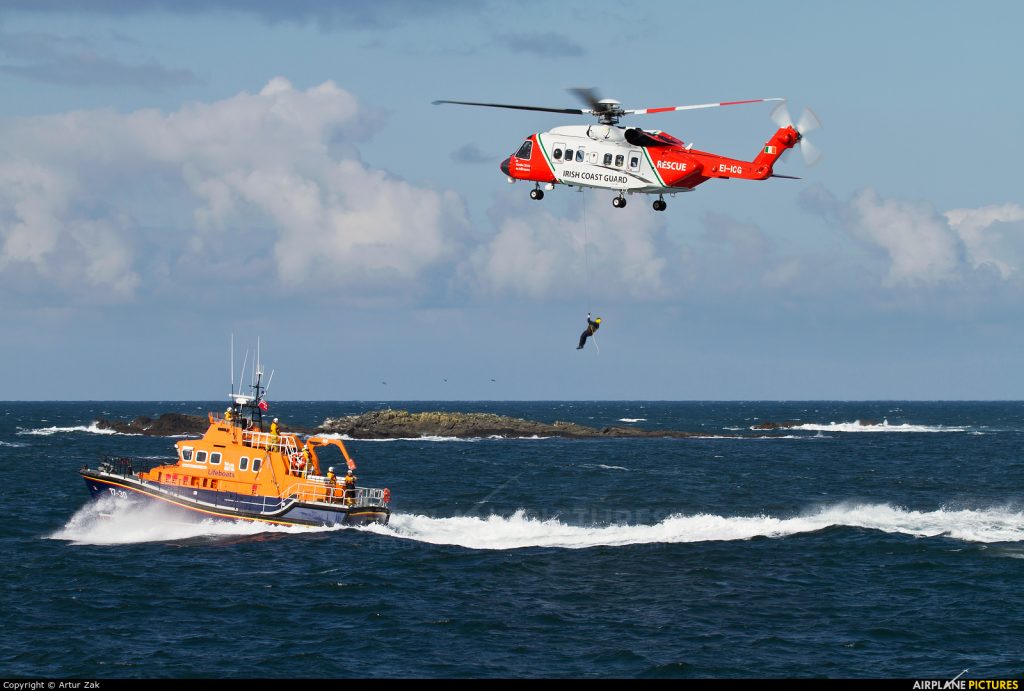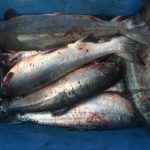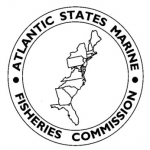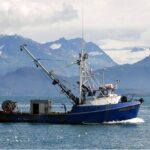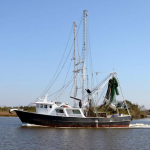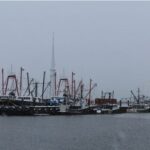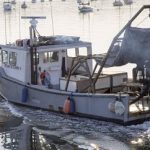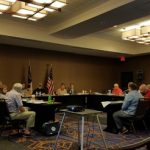Daily Archives: November 2, 2017
NEFMC Undertakes Independent Review to Assess Past Performance and Solicit Suggestions for Improvement
 The New England Fishery Management Council is undergoing an independent review to: (1) assess past performance; (2) gather feedback on strengths and weaknesses of the Council process and operations; and (3) identify potential areas for improvements. Stakeholder input is critical to this review. The Council is encouraging commercial and recreational fishermen, industry leaders, fishery managers, members of non-governmental organizations, and other stakeholders to participate in the effort. ONLINE SURVEY – Port meetings from Maine to New Jersey click here to read the information 21:30
The New England Fishery Management Council is undergoing an independent review to: (1) assess past performance; (2) gather feedback on strengths and weaknesses of the Council process and operations; and (3) identify potential areas for improvements. Stakeholder input is critical to this review. The Council is encouraging commercial and recreational fishermen, industry leaders, fishery managers, members of non-governmental organizations, and other stakeholders to participate in the effort. ONLINE SURVEY – Port meetings from Maine to New Jersey click here to read the information 21:30
D.B. Pleschner: Nearshore anchovy abundance not proof fishery is collapsing
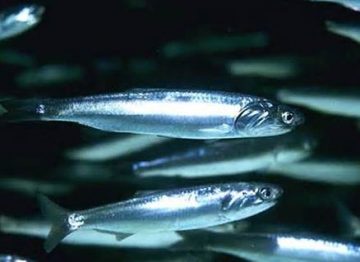 Recently, Dr. William Sydeman of the Farallon Institute, published a study claiming that the abundance of anchovy near shore — especially in places like Monterey — is evidence that the population is collapsing. Sydeman’s logic is based on an old argument that collapsed populations always shrink inshore. But there’s one big problem with that theory — it’s unsupported by scientific evidence.,,, The bottom line: environmental groups with an anti-fishing agenda are already gearing up to hot-box the Pacific Fishery Management Council in spring 2018, lobbying for a steep reduction in anchovy harvest limits, employing whatever colorful, sensational pictures they can paint. click here to read the story 20:58
Recently, Dr. William Sydeman of the Farallon Institute, published a study claiming that the abundance of anchovy near shore — especially in places like Monterey — is evidence that the population is collapsing. Sydeman’s logic is based on an old argument that collapsed populations always shrink inshore. But there’s one big problem with that theory — it’s unsupported by scientific evidence.,,, The bottom line: environmental groups with an anti-fishing agenda are already gearing up to hot-box the Pacific Fishery Management Council in spring 2018, lobbying for a steep reduction in anchovy harvest limits, employing whatever colorful, sensational pictures they can paint. click here to read the story 20:58
Prince Edward Island’s 2017 tuna fishery is down to its final 11 fish
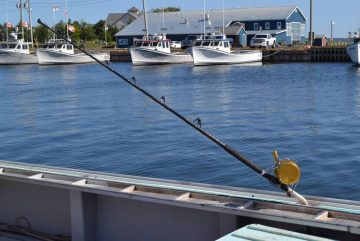 The Department of Fisheries and Oceans reports that, as of Monday, there were 10 tags still remaining for Prince Edward Island’s share of the Canadian allocation, and one tag remaining for Mexican quota which was transferred to the P.E.I. fishery. Tag-holders have until December 31 to catch their fish, but they might have to sail a distance to get them on the hook. Doug Fraser, a western P.E.I. representative on the tuna advisory committee said there hasn’t been a tuna landed off North Cape since late last week. click here to read the story 17:54
The Department of Fisheries and Oceans reports that, as of Monday, there were 10 tags still remaining for Prince Edward Island’s share of the Canadian allocation, and one tag remaining for Mexican quota which was transferred to the P.E.I. fishery. Tag-holders have until December 31 to catch their fish, but they might have to sail a distance to get them on the hook. Doug Fraser, a western P.E.I. representative on the tuna advisory committee said there hasn’t been a tuna landed off North Cape since late last week. click here to read the story 17:54
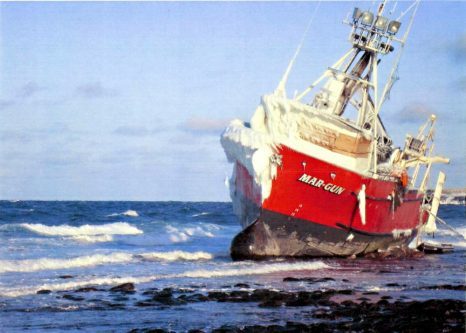
Coast Guard reminds icing dangers, vessel stability for winter fishing season in Alaska
The Coast Guard reminds commercial fishing vessel operators to be aware of the dangers of icing and vessel stability as the winter fishing season gets underway across Alaska. A vessel’s center of gravity can rapidly rise when freezing spray accumulates high above the main deck. Icing conditions exceeding 1.3 inches increase the risk of capsizing and sinking. Operators should use all available resources to determine if icing and freezing spray is forecast in their location for the next 48 to 72-hour time window. If icing conditions are forecast or present, operators should seek shelter, reduce speed, change course and manually remove ice. click here to read press release 15:55
U.S. Coast Guard Issues New Jones Act Build Guidance
 U.S. maritime laws generally referred to as the “Jones Act” restrict U.S. domestic commerce to “U.S.-built” vessels. Because the rules governing what constitutes “U.S.-built” are technical and esoteric, and the consequences of not meeting the standards can be financially catastrophic for the shipyard or vessel owner or both, the U.S. Coast Guard has a regulatory process where it provides advance guidance confirming that a prospective project satisfies the applicable criteria. On October 4, 2017, the Coast Guard issued build determinations for the two Kanaloa-class combination container and roll-on/roll-off vessels to be constructed by the National Steel and Shipbuilding Company (NASSCO). These build determinations have taken on added importance because of the America’s Finest project. click here to read the story 15:04
U.S. maritime laws generally referred to as the “Jones Act” restrict U.S. domestic commerce to “U.S.-built” vessels. Because the rules governing what constitutes “U.S.-built” are technical and esoteric, and the consequences of not meeting the standards can be financially catastrophic for the shipyard or vessel owner or both, the U.S. Coast Guard has a regulatory process where it provides advance guidance confirming that a prospective project satisfies the applicable criteria. On October 4, 2017, the Coast Guard issued build determinations for the two Kanaloa-class combination container and roll-on/roll-off vessels to be constructed by the National Steel and Shipbuilding Company (NASSCO). These build determinations have taken on added importance because of the America’s Finest project. click here to read the story 15:04
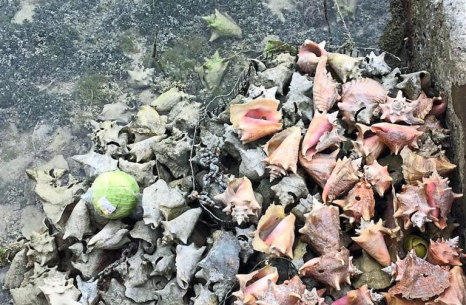
MPA’s – Conch herds face death by old age as young molluscs disappear
The queen of the sea, a monster mollusk that inspired its own republic in the American state of Florida, is in trouble. A marine preserve in the Bahamas, famed for its abundance of queen conches, is missing something too: young conches. Researchers studying the no-take park (where no collection of marine animals is allowed) off Exuma in the Bahamas, one of hundreds throughout the Caribbean, found that over the last two decades, the number of young has sharply declined as adult conches steadily matured and died off. The discovery also raises questions about the effectiveness of marine preserves, long viewed as a solution to reviving overfished stocks. If one of the Caribbean’s oldest and best marine preserves isn’t working to replenish one of its biggest exports – now regulated as tightly as lobster – what does that mean for other preserves and how they’re managed? click here to read the story 11:33
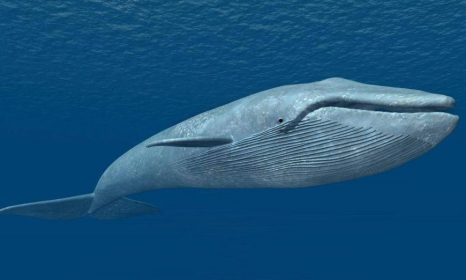
Scientist exposes impacts of seismic airguns on NZ Blue Whales
A renowned marine ecologist at Oregon State University has laid bare the harmful impacts that seismic blasting for oil has on New Zealand’s marine life, including the blue whale. Dr Leigh Torres from the Marine Mammal Institute at Oregon State University, has penned a blog and released recordings that expose the intensity of the seismic airguns used by the petroleum industry to search for oil. The report was written in collaboration with Dr Holger Klinck from Cornell University. click here to read the story 10:53
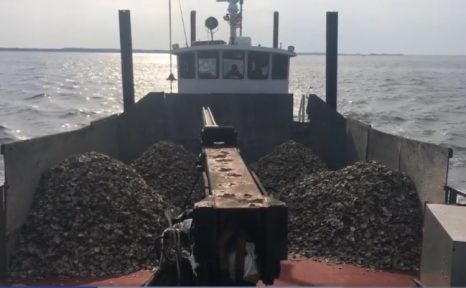
Maryland slashes oyster restoration acreage goal in Eastern Shore sanctuary
Maryland has decided to reduce the large-scale oyster restoration project goal in the Little Choptank River after boaters ran aground at another sanctuary and some of the man-made reefs there had to be rebuilt. The sanctuaries are among five planned to be built as part of a federal-state agreement to improve water quality in the Chesapeake Bay watershed.,, Skeptical of oyster restoration from the start, watermen have complained of trotlines getting stuck in new stone river bottoms and boats being damaged by oyster reef “high spots” in Harris Creek. A trotline is a long, heavy fishing line with short, baited lines suspended from it. They are often used to catch blue crabs in Maryland. click here to read the story 09:46
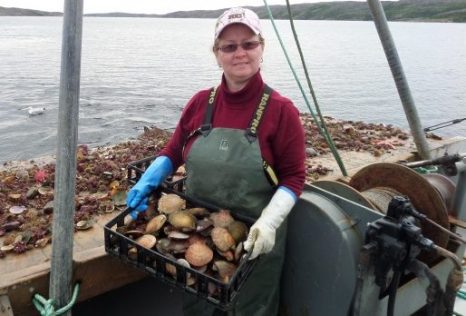
‘Our livelihood is taken from us’: Couple feels left out of William’s Harbour resettlement
The Russells have fished out of William’s Harbour for 28 years — from a house that’s been in their family for generations — but they aren’t getting compensation for their home or a say in the community’s resettlement. “[We] never had enough time in,” said Maryhannah Russell. The Newfoundland and Labrador government is providing up to $270,000 per household for residents of the village — located on an island off Labrador’s south coast — to move out.,, click here to read the story 09:10
Longline fishing industry scrutinized for hiring of foreign fishermen
 The Hawaii Longline Association has jumped into a legal fight they say threatens their livelihood. Longliners oppose a Maui fisherman’s complaint against the state. In a Circuit Court filing, the association defends its practice of hiring fishermen from foreign countries and challenges a lawsuit filed by fisherman Malama Chun. He demands the state stop issuing commercial fishing licenses to foreign fishermen.,,, But Longline Association president Sean Martin said there’s nothing illegal about the state’s licensing practices. click here to read the story 08:02
The Hawaii Longline Association has jumped into a legal fight they say threatens their livelihood. Longliners oppose a Maui fisherman’s complaint against the state. In a Circuit Court filing, the association defends its practice of hiring fishermen from foreign countries and challenges a lawsuit filed by fisherman Malama Chun. He demands the state stop issuing commercial fishing licenses to foreign fishermen.,,, But Longline Association president Sean Martin said there’s nothing illegal about the state’s licensing practices. click here to read the story 08:02






